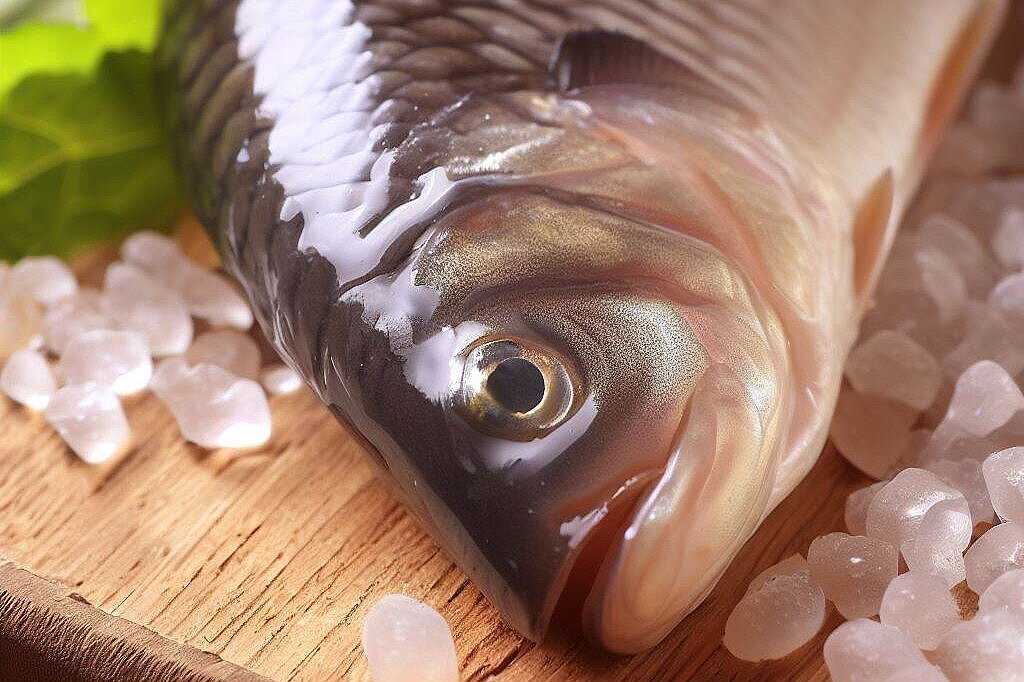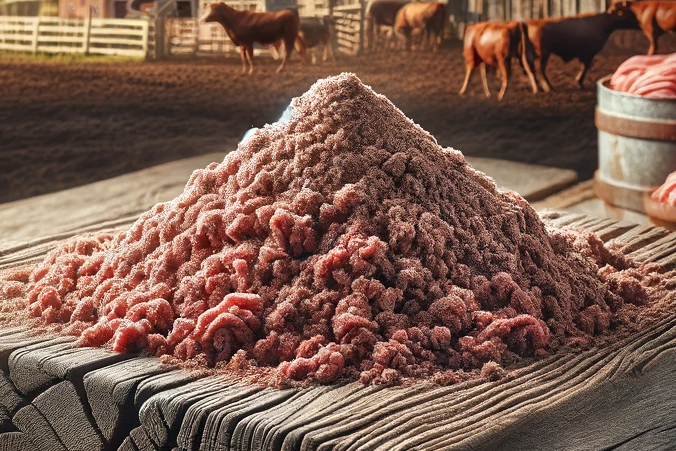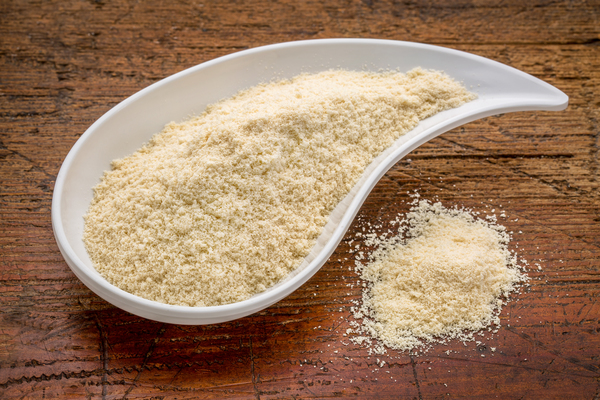Salmon hydrolyzate

What is salmon hydrolyzate?
Salmon hydrolysate is produced by the process of hydrolysis, in which salmon proteins are broken down into smaller peptide chains and amino acids. This breakdown is achieved by the addition of water, with enzymes or acids acting as catalysts. The end product is a highly digestible protein source that is particularly suitable for dogs with sensitive stomachs or food allergies.
Benefits of salmon hydrolysate
Improved digestion
Due to the pre-digested form of the protein, salmon hydrolysate is more easily absorbed by dogs. This is particularly beneficial for dogs with digestive problems as it reduces the risk of gastrointestinal discomfort.
Hypoallergenic potential
For dogs with food allergies or intolerances, salmon hydrolysate can be a good alternative to conventional protein sources. The hydrolysis breaks down the protein structures that typically trigger allergic reactions, minimizing the risk of such reactions.
Rich in nutrients
Salmon hydrolysate retains many of the valuable nutrients of the original salmon, including omega-3 fatty acids, which contribute to skin and coat health, reduce inflammation and support cognitive function.
Good acceptance
Many dogs appreciate the taste of salmon hydrolysate, which can make it easier to feed, especially to picky eaters or dogs that have a reduced appetite due to illness or age.
Disadvantages of salmon hydrolysate
Cost factor
The production of salmon hydrolysate is a costly process, which is reflected in the price. Products containing salmon hydrolysate are often more expensive than those containing conventional protein sources.
Overfeeding
Due to its high digestibility and good acceptability, there is a risk of overfeeding, which can lead to weight gain and associated health problems.
Origin and sustainability
As with salmon skin, it is important to know the origin of the salmon hydrolysate. Products from non-sustainable fisheries can raise environmental concerns.
Lack of long-term studies
Although salmon hydrolysate offers many benefits, there are still relatively few long-term studies that comprehensively evaluate its effects on dogs' health.
Salmon hydrolysate can be a valuable addition to your dog's diet, especially if he suffers from digestive problems or food allergies. Its hypoallergenic properties and high digestibility make it a safe and nutritious source of protein. However, when choosing products with salmon hydrolysate, you should pay attention to the origin, sustainability and individual needs of your dog. As with any dietary change, it is advisable to introduce it gradually and monitor your dog's reaction closely. With the right balance, salmon hydrolysate can help to support the health and well-being of your four-legged friend.
If you notice any signs of hypersensitivity or poisoning in your dog, you should see your vet immediately. We are not a substitute for a vet, but we try to be as accurate as possible. Every dog reacts differently and we recommend you get a second opinion or consult your vet if in doubt.
Stay healthy and take good care of your four-legged friend!😊
Similar to Salmon hydrolyzate
Fish hydrolyzate is a product obtained from fish or fish by-products. The fish proteins are broken down by enzymes or acids into smaller building blocks known as peptides. These peptides are easier...
Crustacean hydrolysate is a product obtained from the shells of crustaceans such as shrimps, crabs or lobsters. These shells contain a high proportion of chitin, a natural polymer that forms the...
Bovine hydrolysate is a product obtained through the process of hydrolysis - a method in which bovine protein is broken down into smaller peptides and amino acids using water. This process simulates...
Protein hydrolyzate is a product that is created by artificially breaking down proteins. Proteins are large molecules that consist of many smaller building blocks, the amino acids. Using various...



